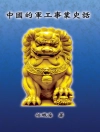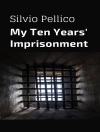Although much has been written about the Western Front in World War I, little attention has been given to developments in the east, especially during the crucial period of 1914–1915. Not only did these events have a significant impact on the fighting and outcome of the battles in the west, but all the major combatants in the east ultimately suffered collapses of their political systems with enormous consequences for the future events.
Available for the first time in English, this seminal study features contributions from established and rising scholars from eight countries who argue German, central, and eastern European perspectives. Together, they illuminate diverse aspects of the Great War’s Eastern Theater, including military strategy and combat, issues of national identity formation, perceptions of the enemy, and links to World War II. They also explore the experiences of POWs and the representation of the Eastern Front in museums, memorials, and the modern media.
The scholarship on the First World War is dominated by the trauma of the modern, technologized war in the west, causing the significant political events and battles on the Eastern Front to shift to the background. The Forgotten Front illuminates overlooked but vital aspects of the conflict, and will be an essential resource for students and scholars seeking to better understand the war and its legacy.
Inhaltsverzeichnis
Introduction
The Eastern Front: Geopolitics, Geography, and Operations
The Battles on the Eastern Front 1914/15: Introductory Remarks
In the Shadow of the West: The German Conduct of War on the Eastern Front up to the End of 1915
Russia versus Germany: The Eastern Front of the First World War between 1914 to 1915
Of Bastards and Brothers at Arms: Practical Matters and Resentments among the Central Powers in 1914/15
The Battlefields of Concepts / Concepts of the Battlefields The Eastern Front of the First World War and Perceptions of the Enemy: Introductory Remarks
The First World War of 1914 to 1915, and the Creating of an Identity for the Modern Polish Nation
The German People: Russia’s Self-Concept and its Concept of the Enemy
The Slavic Peoples: The Central Powers‘ Self-Concept and Concept of the Enemy
All Quiet on the Eastern Front: German Literature and the Eastern Front of the First World War
August 1914: Alexander Solzhenitsyn and Russian Wartime Literature in the Early Years of the War
The Reality of War and the War Experience of Russian Soldiers on the Russian Western Front 1914/15
The War in the East of 1914/15 and the Experience of the German Military
The Culture of Remembrance of the First World War: Introductory Remarks
From Ober Ost to Ostland?
War Exhibits: Forms of Presentation of the World War for the ‚Homeland Front‘
Suppressed Remembrances: On the History of the Moscow Brothers‘ (Soldiers‘) Cemetery
The Unknown Soldier
The First World War on the Internet
Prologue to the War of Annihilation? The Eastern Front of the First World War and the Problem of Continuities
Über den Autor
Gerhard P. Gross is a historian at the Bundeswehr Center of Military History and Social Sciences (ZMSBw) in Potsdam, Germany.












